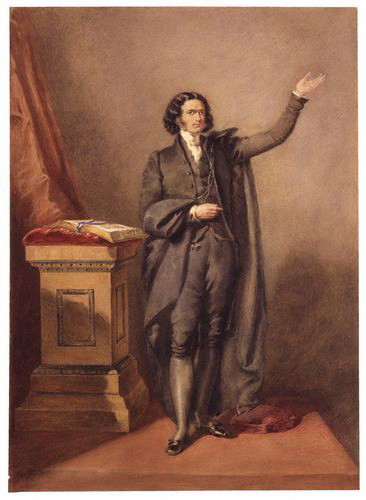|
Archie Brown (historian)
Archibald Haworth Brown, (born 10 May 1938, Annan) is a British political scientist. In 2005, he became an emeritus professor of politics at the University of Oxford and an emeritus fellow of St Antony's College, Oxford, where he served as a professor of politics and director of St Antony's Russian and East European Centre. He has written widely on Soviet and Russian politics, on communist politics more generally, on the Cold War, and on political leadership. Career Brown taught at the University of Glasgow from 1964 to 1971, during which time he was a British Council exchange scholar at Moscow State University for the academic year 1967–68.Archie Brown's St Antony's College Biography In 1998, he was a Distinguished Visiting Fellow of the Helen Kellogg Institute for International Studies at the |
Annan, Dumfries And Galloway
Annan ( ; ) is a town and former royal burgh in Dumfries and Galloway, south-west Scotland. Historically part of Dumfriesshire, its public buildings include Annan Academy, of which the writer Thomas Carlyle was a pupil, and a Georgian building now known as "Bridge House". Annan also features a Historic Resources Centre. In Port Street, some of the windows remain blocked up to avoid paying the window tax. Each year on the first Saturday in July, Annan celebrates the Royal Charter and the boundaries of the Royal Burgh are confirmed when a mounted cavalcade undertakes the Riding of the Marches. Entertainment includes a procession, sports, field displays and massed pipe bands. Annan's in America first migrated to New York and Virginia. Annandale Virginia is an early settlement which celebrates The Scottish Games annually. Geography Annan stands on the River Annan—from which it is named—nearly from its mouth, accessible to vessels of 60 tons as far as Annan Bridge ... [...More Info...] [...Related Items...] OR: [Wikipedia] [Google] [Baidu] |
Carnegie Endowment For International Peace
The Carnegie Endowment for International Peace (CEIP) is a nonpartisan international affairs think tank headquartered in Washington, D.C., with operations in Europe, South Asia, East Asia, and the Middle East, as well as the United States. Founded in 1910 by Andrew Carnegie, the organization describes itself as being dedicated to advancing cooperation between countries, reducing global conflict, and promoting active international engagement between the United States and countries around the world. It engages leaders from multiple sectors and across the political spectrum. In the University of Pennsylvania's "2019 Global Go To Think Tanks Report", Carnegie was ranked the number 1 top think tank in the world. In the ''2015 Global Go To Think Tanks Report'', Carnegie was ranked the third most influential think tank in the world, after the Brookings Institution and Chatham House. It was ranked as the top Independent Think Tank in 2018. Its headquarters building, prominently locate ... [...More Info...] [...Related Items...] OR: [Wikipedia] [Google] [Baidu] |
Companions Of The Order Of St Michael And St George
Companion may refer to: Relationships Currently * Any of several interpersonal relationships such as friend or acquaintance * A domestic partner, akin to a spouse * Sober companion, an addiction treatment coach * Companion (caregiving), a caregiver, such as a nurse assistant, paid to give a patient one-on-one attention Historically * A concubine, a long-term sexual partner not accorded the status of marriage * Lady's companion, a historic term for a genteel woman who was paid to live with a woman of rank or wealth * Companion cavalry, the elite cavalry of Alexander the Great * Foot Companion, the primary type of soldier in the army of Alexander the Great * Companions of William the Conqueror, those who took part in the Norman conquest of England * Muhammad's companions, the Sahaba, the friends who surrounded the prophet of Islam Film and television * ''Companion'' (film), a 2025 American film * Companion (''Doctor Who''), a character who travels with the Doctor in the TV ... [...More Info...] [...Related Items...] OR: [Wikipedia] [Google] [Baidu] |
Columbia University Faculty
Columbia most often refers to: * Columbia (personification), the historical personification of the United States * Columbia University, a private university in New York City * Columbia Pictures, an American film studio owned by Sony Pictures * Columbia Sportswear, an American clothing company * Columbia, South Carolina * Columbia, Missouri Columbia may also refer to: Places North America Natural features * Columbia Plateau, a geologic and geographic region in the U.S. Pacific Northwest * Columbia River, in Canada and the United States ** Columbia Bar, a sandbar in the estuary of the Columbia River ** Columbia Country, the region of British Columbia encompassing the northern portion of that river's upper reaches *** Columbia Valley, a region within the Columbia Country ** Columbia Lake, a lake at the head of the Columbia River *** Columbia Wetlands, a protected area near Columbia Lake ** Columbia Slough, along the Columbia watercourse near Portland, Oregon * Glacial Lake ... [...More Info...] [...Related Items...] OR: [Wikipedia] [Google] [Baidu] |
Cold War Historians
Cold is the presence of low temperature, especially in the atmosphere. In common usage, cold is often a subjective perception. A lower bound to temperature is absolute zero, defined as 0.00K on the Kelvin scale, an absolute thermodynamic temperature scale. This corresponds to on the Celsius scale, on the Fahrenheit scale, and on the Rankine scale. Since temperature relates to the thermal energy held by an object or a sample of matter, which is the kinetic energy of the random motion of the particle constituents of matter, an object will have less thermal energy when it is colder and more when it is hotter. If it were possible to cool a system to absolute zero, all motion of the particles in a sample of matter would cease and they would be at complete rest in the classical sense. The object could be described as having zero thermal energy. Microscopically in the description of quantum mechanics, however, matter still has zero-point energy even at absolute zero, because ... [...More Info...] [...Related Items...] OR: [Wikipedia] [Google] [Baidu] |
British Political Scientists
British may refer to: Peoples, culture, and language * British people, nationals or natives of the United Kingdom, British Overseas Territories and Crown Dependencies. * British national identity, the characteristics of British people and culture * British English, the English language as spoken and written in United Kingdom of Great Britain and Northern Ireland and, more broadly, throughout the British Isles * Celtic Britons, an ancient ethno-linguistic group * Brittonic languages, a branch of the Insular Celtic language family (formerly called British) ** Common Brittonic, an ancient language Other uses *People or things associated with: ** Great Britain, an island ** British Isles, an island group ** United Kingdom, a sovereign state ** British Empire, a historical global colonial empire ** Kingdom of Great Britain (1707–1800) ** United Kingdom of Great Britain and Ireland (1801–1922) * British Raj, colonial India under the British Empire * British Hong Kong, colonial H ... [...More Info...] [...Related Items...] OR: [Wikipedia] [Google] [Baidu] |
Alumni Of The London School Of Economics
Alumni (: alumnus () or alumna ()) are former students or graduates of a school, college, or university. The feminine plural alumnae is sometimes used for groups of women, and alums (: alum) or alumns (: alumn) as gender-neutral alternatives. The word comes from Latin, meaning nurslings, pupils or foster children, derived from "to nourish". The term is not synonymous with "graduates": people can be alumni without graduating, e.g. Burt Reynolds was an alumnus of Florida State University but did not graduate. The term is sometimes used to refer to former employees, former members of an organization, former contributors, or former inmates. Etymology The Latin noun means "foster son" or "pupil". It is derived from the Latin verb "to nourish". Separate, but from the same root, is the adjective "nourishing", found in the phrase '' alma mater'', a title for a person's home university. Usage in Roman law In Latin, is a legal term (Roman law) to describe a child placed in foster ... [...More Info...] [...Related Items...] OR: [Wikipedia] [Google] [Baidu] |
Academics Of The University Of Glasgow , a person who is a researcher or has expertise in an academic discipline
{{Disambiguation ...
Academic means of or related to an academy, an institution learning. Academic or academics may also refer to: * Academic staff, or faculty, teachers or research staff * school of philosophers associated with the Platonic Academy in ancient Greece * The Academic, Irish indie rock band * "Academic", song by New Order from the 2015 album ''Music Complete'' Other uses *Academia (other) *Academy (other) *Faculty (other) *Scholar A scholar is a person who is a researcher or has expertise in an academic discipline. A scholar can also be an academic, who works as a professor, teacher, or researcher at a university. An academic usually holds an advanced degree or a termina ... [...More Info...] [...Related Items...] OR: [Wikipedia] [Google] [Baidu] |
People From Annan, Dumfries And Galloway
The term "the people" refers to the public or common mass of people of a polity. As such it is a concept of human rights law, international law as well as constitutional law, particularly used for claims of popular sovereignty. In contrast, a people is any plurality of persons considered as a whole. Used in politics and law, the term "a people" refers to the collective or community of an ethnic group or nation. Concepts Legal Chapter One, Article One of the Charter of the United Nations states that "peoples" have the right to self-determination. Though the mere status as peoples and the right to self-determination, as for example in the case of Indigenous peoples (''peoples'', as in all groups of indigenous people, not merely all indigenous persons as in ''indigenous people''), does not automatically provide for independent sovereignty and therefore secession. Indeed, judge Ivor Jennings identified the inherent problems in the right of "peoples" to self-determination, as i ... [...More Info...] [...Related Items...] OR: [Wikipedia] [Google] [Baidu] |
21st-century British Historians
File:1st century collage.png, From top left, clockwise: Jesus is crucified by Roman authorities in Judaea (17th century painting). Four different men ( Galba, Otho, Vitellius, and Vespasian) claim the title of Emperor within the span of a year; The Great Fire of Rome (18th-century painting) sees the destruction of two-thirds of the city, precipitating the empire's first persecution against Christians, who are blamed for the disaster; The Roman Colosseum is built and holds its inaugural games; Roman forces besiege Jerusalem during the First Jewish–Roman War (19th-century painting); The Trưng sisters lead a rebellion against the Chinese Han dynasty (anachronistic depiction); Boudica, queen of the British Iceni leads a rebellion against Rome (19th-century statue); Knife-shaped coin of the Xin dynasty., 335px rect 30 30 737 1077 Crucifixion of Jesus rect 767 30 1815 1077 Year of the Four Emperors rect 1846 30 3223 1077 Great Fire of Rome rect 30 1108 1106 2155 Boudican re ... [...More Info...] [...Related Items...] OR: [Wikipedia] [Google] [Baidu] |



